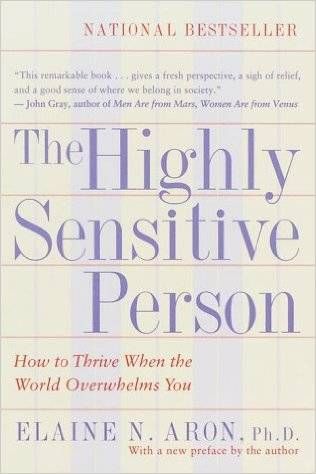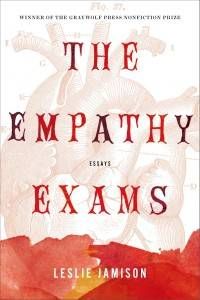
The Self Help Book That Actually Helped My Highly Sensitive Life

The title is a teeny bit misleading, or at least might do the subject some degree of disservice; even its author, Dr. Elaine Aron, wishes she would have come up with a more accurate name. Is a Highly Sensitive Person just someone who cries all the time? Are they just oversensitive to criticism?
No and no. Somewhat more recently, science has lent a helping hand by calling this temperament Sensory Processing Sensitivity. It’s legit.
SPS or HSP—whichever title you dig more—is essentially a trait that makes those who are born with it much more attuned to environmental subtleties, and much, much more likely to become overstimulated by their environments because they are paying such close attention. This heightened sensitivity can be to both physical and also emotional stimulation. And there are quite a few of us HSPs roaming around in the wild out there. The book claims that about 20% of the population is born with it. TWENTY PERCENT. In other words, look to your left. Now look to your right. Now look ahead and behind you. One person you just looked at, or maybe you, probably has this trait. Them’s good odds. Them’s real good odds.
I have recently piled my bedside table with self-help books that, if stacked end to end, would approximately reach the moon and back twelve times. And I am not talking about Earth’s moon. (See also: Io.) (See also: it’s a lot of books, okay?) This one has become the champ in terms of what it’s done for my life.
My answers in the opening questionnaire made it quite clear that I’m a solid candidate for the being a Highly Sensitive Person, for reasons that include but are not limited to: harsh overhead lightning tends to stress me out; I am so focused on subtext and what people are needing and feeling under the surface that I sometimes confuse those needs and feelings with my own and it wears me out; when placed in a comfy chair with a soothing background sound like a crackling fire or gentle wind chimes, I basically start to purr from happiness; too much time spent in a noisy, crowded, or confusing place sends my body, mind, and spirit into red alert; multitasking—just forget about it; I have a Beagle nose that can smell second hand smoke if the person in the car ahead of me at a red light is having a puff, and the smell of paving tar makes me feel like Gollum is throttling my throat like a fish. There’s more, but we only have so much time here together.

“I’ve always treasured empathy as the particular privilege of the invisible, the observers who are shy precisely because they sense so much—because it is overwhelming to say even a single word when you’re sensitive to every last flicker of nuance in the room.”
I could not have more accurately described the experience of HSP. This is why Leslie Jamison is a bestselling author, probably, and I’m just a dude on the Internet.
What happens when a Highly Sensitive Person has too much to deal with? Dr. Aron calls it “over-arousal,” and because Sigmund Freud sometimes looks over my shoulder as I read, I replace it in my mind with “overstimulation.” Either way, you feel tired, taxed, stressed out, not yourself, and you can just sort of shut down because your body and spirit are trying to go into low-power mode.
This all might seem a lot like being an introvert, but social interaction is only a portion of what can trigger a Highly Sensitive Person. I have spent many, many years trying to figure out why I run out of my life’s fuel so quickly, and I have long believed it to be my fatal flaw. But after reading the counsel of Dr. Aron, I’ve learned that I can refuel quickly and conveniently by taking small comfort breaks. And I suddenly have a new vocabulary for understanding what I’m actually experience—words far more accurate than “general anxiety”, “being tuckered out”, “emotionally spent”, “having nothing left to give”, “being burned out”, “going blank”, and so forth.
Now I can take a moment to ask myself what in this environment is killing my spirit, and then I evaluate if I can change it. If I can’t change it, simply having acknowledged it helps so, so much when letting it go or shielding myself from that stimulation.
Let me illustrate with a real life example. So, I think I’m a pretty empathetic person, and one would expect that to be a good thing pretty much all the time every time, right? I did. But sometimes, someone would be telling me about someone they were angry with, and my empathy would kind of go haywire. And, without really understanding what I was doing, I was suddenly empathizing with the person being talked about rather than with the person I was listening to. Suddenly I made myself the receiver of the anger. Suddenly, I was absorbing the frustration, or suddenly trying to find a way for my friend to understand the person they were angry with. But all they wanted was to be listened to. They never asked me to, like, roleplay as the other person, or even offer up solutions or explanations for that other person’s behavior. They’re just mad. And they wanted to talk. And I should have just listened. It’s such a simple, normal, everyday interaction. But it often stressed me out.
I had the fresh knowledge that I didn’t have to absorb these feelings; I could observe them, or just be with them. I didn’t have to be them. And I was free. Or at least I was on the path to freedom.
Obviously, The Highly Sensitive Person does a better job of explaining it than I ever could, but I will boldly give it this ringing endorsement: it could change a life and it could save a relationship or a job. It’s an incredibly valuable lens through which you can view your responses to the world, and it’s also a versatile toolbox to help dismantle stress. And if you can dismantle stress, you are already building yourself a better life.














